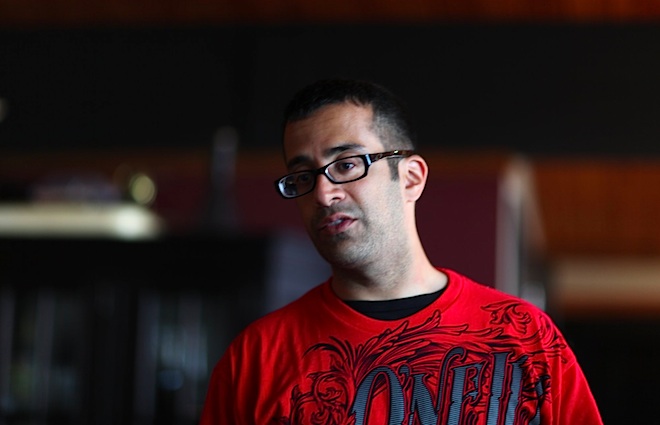Microsoft is creating a startup three-ring circus.
The company is combining various startup initiatives into one coordinated global effort called Microsoft Ventures. It will include a community-evangelism program, an accelerator program, and a seed fund that supports startups around the world as they grow their customer base and products.
Microsoft has a long history of supporting entrepreneurs, and this consolidation should give entrepreneurs a “single point of entry” to engage with the company. General Manager Rahul Sood, who previously headed up the Bing Fund, said in a blog post that startups face plenty of challenges and Microsoft is in a strong position to help them, whether it is through funding, expertise, tools, mentorship, or relationships with strategic partners.
The more “holistic approach” will have resources for entrepreneurs at various parts of the early-stage startup cycle. Anyone with an idea can tap into Microsoft’s BizSpark resources as well as locally supported partnerships with 200 startup-focused organizations around the world. For startups that are in the development stages, Microsoft offers accelerator programs around the world.
Microsoft launched its first accelerator in March 2012 in Israel for cloud-companies. Instead of seed funding, Microsoft offered free access to its Windows Azure cloud platform as well as BizSpark software development tools and services. It now has five accelerators in Seattle, Tel Aviv, Bangalore, Beijing, and Paris and will soon add programs in Rio de Janeiro, Berlin, and Moscow.
Microsoft established the Bing Fund in July to invest $50,000 to $100,000 in early-stage startups through standard convertible notes. The incubator also provided four to eight months of advice, design, and development help and discounted access to the Azure Data Marketplace APIs, and introductions to potential partners or customers. Microsoft Ventures will “evolve” the Bing Fund by adding more capital. It will focus on business-to-business companies that align with Microsoft’s area of expertise, including enterprise software, “big data,” security, artificial intelligence, advertising, gaming, SaaS, and cloud services.
“Our intent is to roll up our sleeves and help entrepreneurs take their early-stage prototypes to scalable products,” said Sood in an interview with VentureBeat last year.
“Entrepreneur” has become a trendy career choice, and after years of high unemployment and stagnant wages, people are increasingly interested in forging their own destinies. Furthermore, the stories of startup successes (like Instagram) put a rather glamorous gloss over the industry, and startup hubs are cropping up in international markets. As a result, accelerator programs and startup networks are proliferating. There are large, well-known programs like Y Combinator and 500 Startups as well as other accelerators that focus on specific areas of expertise. Many of these programs are designed to help international entrepreneurs make inroads into the U.S. market.
There are now so many programs that people have expressed skepticism over their actual value. The main value in accelerator programs rests in the strength of their mentor, partner, and resource networks, and in the ability to convey this value to the entrepreneurs. Y Combinator recently scaled back its most recent class after realizing that its portfolio startups weren’t getting the attention they needed. Microsoft Ventures is in an effort to stay focused, and bring all of its startup-support muscle together to provide more comprehensive benefits to entrepreneurs.
VentureBeat's mission is to be a digital town square for technical decision-makers to gain knowledge about transformative enterprise technology and transact. Learn More

